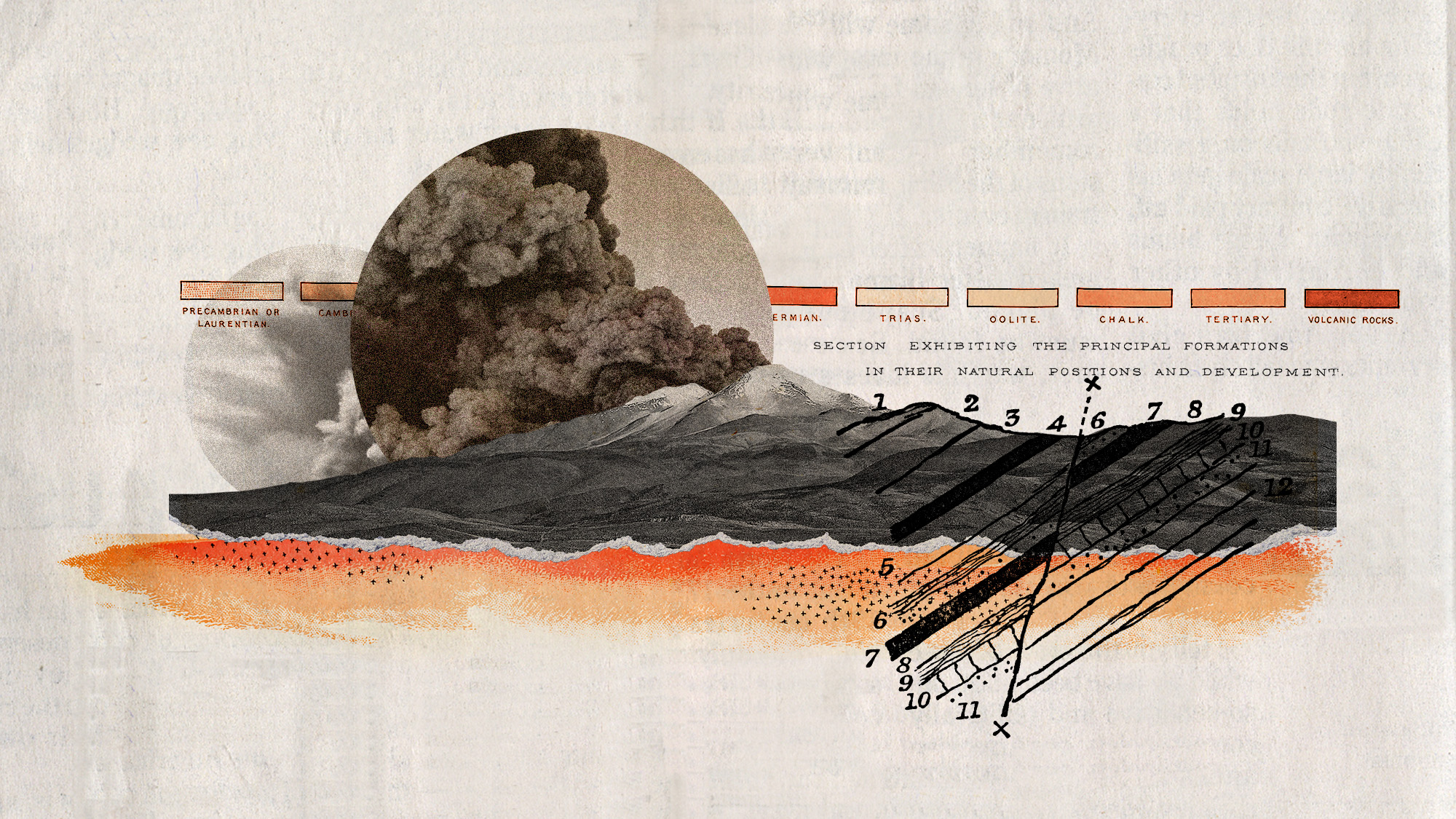Savor the summer, experts say. You will see these temps again.
Extremely hot summers are here to stay


A free daily email with the biggest news stories of the day – and the best features from TheWeek.com
You are now subscribed
Your newsletter sign-up was successful
This summer has already been marked by record-high temperatures, with July 3 through July 6 being historically the hottest four days on record. However, this is just the beginning, according to experts, and temperatures will only get warmer from here.
Why is this summer so hot?
There have been heatwaves all over the world this summer, with the warmest day on record reaching an average global temperature of 63.02 degrees Fahrenheit, almost two degrees warmer than the previous record, Axios wrote. This unprecedented level of heat can be attributed to three factors: heat domes, El Niño, and climate change.
Heat domes occur "when a ridge of high pressure builds over an area and doesn't move for up to a week or more," according to CNN. The ridge traps heat in warming regions to high temperatures for extended periods of time. Many heat records have been set because of a heat dome, and they are expected to become more frequent due to climate change.
The Week
Escape your echo chamber. Get the facts behind the news, plus analysis from multiple perspectives.

Sign up for The Week's Free Newsletters
From our morning news briefing to a weekly Good News Newsletter, get the best of The Week delivered directly to your inbox.
From our morning news briefing to a weekly Good News Newsletter, get the best of The Week delivered directly to your inbox.
Every warming event is also being magnified due to El Niño, a weather phenomenon where "sea temperatures at the surface in the central and eastern tropical Pacific Ocean become substantially warmer than normal," according to the World Meteorological Organization. One of the effects of the phenomenon is adding additional warming because the ocean's heat also warms the atmosphere.
The largest contributor to the temperature spike is climate change. "Human-driven climate change adds a permanent super El Niño worth of heat to the atmosphere every decade," climate scientist Zeke Hausfather told The Associated Press. The continual burning of fossil fuels releases greenhouse gases into the atmosphere, which trap heat. Compounded with the other factors, the conditions are perfect for extreme heat.
What is the forecast for future summers?
"Hotter extremes are one of the most obvious consequences of rising global temperatures," John Nielsen-Gammon, a climatologist at Texas A&M University, told Vox. These extremes are only going to worsen as climate change intensifies, with CNN calling summers "survival tests." According to the U.S. Environmental Protection Agency, the frequency of heat waves has increased over the years from an average of two per year in the 1960s to an average of six in the 2020s.
"Until we stop burning fossil fuels, this will only get worse," remarked climate scientist Friederike Otto to AP. "Heat records will keep getting broken, people and ecosystems are already in many cases beyond what they are able to deal with." Human impact will continue to exacerbate the extreme weather all over the world — the record temperatures this summer were "made twice as likely because of man-made climate change," per BBC.
A free daily email with the biggest news stories of the day – and the best features from TheWeek.com
"Earth is screaming at us right now and people need to listen," chief meteorologist and director of Climate Matters, Bernadette Woods Placky told CNN. "It should be a wake-up call or an urgency to people that this is just not normal." In addition, the warmer the temperatures get, the more people will crank up their air conditioners, which in turn worsens climate change.
"The broad effect of climate change is pretty clear," wrote Vox. "It will make heat waves more common, longer-lasting, and more extreme."
Devika Rao has worked as a staff writer at The Week since 2022, covering science, the environment, climate and business. She previously worked as a policy associate for a nonprofit organization advocating for environmental action from a business perspective.
-
 The ‘ravenous’ demand for Cornish minerals
The ‘ravenous’ demand for Cornish mineralsUnder the Radar Growing need for critical minerals to power tech has intensified ‘appetite’ for lithium, which could be a ‘huge boon’ for local economy
-
 Why are election experts taking Trump’s midterm threats seriously?
Why are election experts taking Trump’s midterm threats seriously?IN THE SPOTLIGHT As the president muses about polling place deployments and a centralized electoral system aimed at one-party control, lawmakers are taking this administration at its word
-
 ‘Restaurateurs have become millionaires’
‘Restaurateurs have become millionaires’Instant Opinion Opinion, comment and editorials of the day
-
 How climate change is affecting Christmas
How climate change is affecting ChristmasThe Explainer There may be a slim chance of future white Christmases
-
 Why scientists are attempting nuclear fusion
Why scientists are attempting nuclear fusionThe Explainer Harnessing the reaction that powers the stars could offer a potentially unlimited source of carbon-free energy, and the race is hotting up
-
 Canyons under the Antarctic have deep impacts
Canyons under the Antarctic have deep impactsUnder the radar Submarine canyons could be affecting the climate more than previously thought
-
 NASA is moving away from tracking climate change
NASA is moving away from tracking climate changeThe Explainer Climate missions could be going dark
-
 What would happen to Earth if humans went extinct?
What would happen to Earth if humans went extinct?The Explainer Human extinction could potentially give rise to new species and climates
-
 Bacteria can turn plastic waste into a painkiller
Bacteria can turn plastic waste into a painkillerUnder the radar The process could be a solution to plastic pollution
-
 A zombie volcano is coming back to life, but there is no need to worry just yet
A zombie volcano is coming back to life, but there is no need to worry just yetUnder the radar Uturuncu's seismic activity is the result of a hydrothermal system
-
 'Bioelectric bacteria on steroids' could aid in pollutant cleanup and energy renewal
'Bioelectric bacteria on steroids' could aid in pollutant cleanup and energy renewalUnder the radar The new species is sparking hope for environmental efforts
